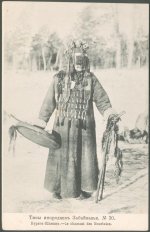February, 1967
"Man extending himself into the landscape, as you say; which you are right to consider a crucial question for the subsequent formalities of conduct. My own interest has a different emphasis from yours, however, and as it's clear that a great pressure has to be located behind the Indo European migrations, it can as clearly be shaped to serve quite various though related needs.
So that: I address myself to the primal history of QUALITY, as a designation for accumulations of motive simultaneous with patterns of behaviour as convergence I could take this as place-focus, but just as well in the discretionary image of person, or local convulsions in the sequence of time. And with such a separation from the idea of REGION, it becomes more possible to consider land mass more or less as such: the loess tundra, for example, or boreal parkland, in which brief or semi permanent settlement is possible but not in the figure of large social organisation which makes a region. My instinct is that the distribution of local instances of fact which can be grouped(pot and implement typology, for example) has led to imposed ideas of REGION that are foreign in pre literate landscape and which are(by unacknowledged retrojection) based on common law practice concerning land OWNERSHIP. .."
angelexhaust.blogspot.com

